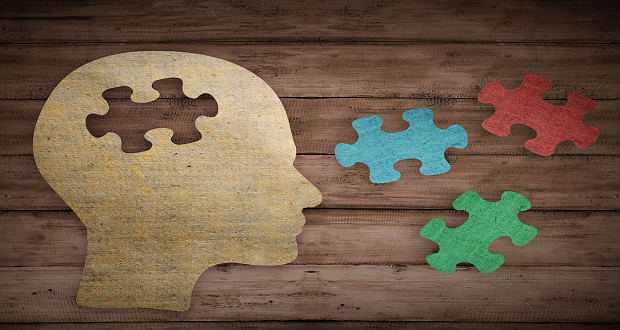
During my first day at an internship I once held, each of us was asked to tell a joke as part of our introduction to the staff and the rest of the intern cohort. This fun activity proceeded as planned… until the last intern told a hurtful, racist “joke” about poverty and food in another culture. It was followed by an awkward silence during which we all winced and looked around, uncertain how to respond. One of the staff eventually said, “Wow. Well. Let’s continue with our agenda.”
While we all knew that the joke was not just uncomfortable, but also very hurtful, none of us was prepared to unpack that harm—because none of us anticipated it. Many of us have been in these situations. Key to responding appropriately to problematic jokes is equipping ourselves with the appropriate language so that when we next find ourselves in a similar situation, we aren’t at a loss for words. With this in mind, I have collected some suggested responses to harmful jokes and common defenses used to “justify” them.
Key to responding appropriately to problematic jokes is equipping ourselves with the appropriate language so that when we next find ourselves in a similar situation, we aren’t at a loss for words. Share on XResponding to the Joke
Simple statements like, “Wow, that’s not cool,”or, “What you just said made me very uncomfortable,” can be an effective response to a problematic joke. Simple and direct, they waste no time in identifying that the message in the “joke,” isn’t acceptable. Because human behavior is substantially shaped by our understanding of social norms, explicitly naming a message as outside of the accepted social norm can have a powerful effect in altering someone’s behavior. Unfortunately, the opposite is also true, which we have seen as xenophobic rhetoric has increasingly become normalized on interpersonal and cultural levels alike. Intervening in a situation to express that we are not okay with a harmful message is essential to disrupting this process.
If you prefer to take a slightly less direct—or more educational approach—a great alternative to the former statements is to ask the person telling the joke to explain it. As Better Allies suggested in a post this week, those who consider themselves allies to marginalized communities can step up and interrupt harmful jokes by saying, “I don’t get it. Please explain the joke.” This tactic may be particularly helpful because it may be perceived as less confrontational but requires the joker to do the work for themselves of unpacking the harmful stereotype or narrative, and stating it more explicitly. This isn’t comfortable, but it is a learning experience, particularly if they haven’t previously stopped to reflect on the message more deeply. And while it’s gratifying to get a laugh, it’s always a bit awkward to explain a joke, even when the topic isn’t problematic. In turn, the person is less likely to repeat the joke in the future.
Often, when people are challenged on the topic of their “edgy” humor, they attempt to provide justifications for why it is, in fact, okay and should not be taken so seriously. Sometimes, these arguments are harder to respond to than the joke itself. Here are a few ideas for starting productive conversations that may help to shift perceptions.
It’s just a joke! Why are you so upset?
This argument relies on a flaw in logic: the idea that because something was intended to be humorous, it is unreasonable to have an angry or emotional response. A central tenet in D&I work is the idea that intent is different from impact; we may intend a comment in one way, but it may be interpreted by others differently. Importantly: we are responsible for the impact, not just the intent, of our words and actions. While many people from casual jokers at social gatherings to successful comedians have responded to this idea defensively, it is a reality that the sociopolitical climate has shifted in recent years, and people are increasingly being held accountable for making jokes in poor taste. Eddie Murphy recently reflected on and apologized for several jokes he told in the past that were hurtful to others, demonstrating the power of reflection, evolving with the times, and practicing vulnerability. While it’s difficult to admit mistakes or acknowledge the harm we may cause others, this response is much more thoughtful, respectful, and courageous than denying any wrongdoing.
Additionally, “Why are you so upset?” is a question that comes, more often than not, from people holding privileged identities responding to criticism of their “jokes” about marginalized identities. As I often share: we are experts of our own experiences.It is essential to recognize that our privileges frequently render us unaware of how people who do not share them experience the world. However, a substantial body of research has documented the phenomenon of discrimination and prejudice being extremely emotionally and physically taxing for those who hold various marginalized identities. Criticizing someone’s emotional response to a comment invalidates marginalized groups’ and individuals’ experiences of oppression and trauma, and further perpetuates existing inequities. Owning your privilege means owning your impact as well as your intentions, and learning from mistakes.
Owning your privilege means owning your impact as well as your intentions, and learning from mistakes. Share on X
“I don’t actually believe that.”
When arguing that they should not be held accountable for the topic of their jokes, people may also fall back on the excuse that they don’t believe the stereotype or harmful statement they expressed—they only used it for comedic effect. Yet, while I am confident my fellow intern was in no way an avowed white supremacist, the joke she told nonetheless upheld white supremacist rhetoric—in this case suggesting that poverty was inherent to an entire culture. If themes in problematic humor were not based on power dynamics that we all understand on some level, these jokes would not make sense to any of us. And while we may not explicitly buy into these stereotypes and prejudices, chances are we have in some way internalized them; recounting them only contributes further to this process. As long as inequities persist, it’s essential to understand that humor cannot be separated from this reality.
While we may not explicitly buy into these stereotypes and prejudices, chances are we have in some way internalized them; recounting them only contributes further to this process. Share on X“Comedy is supposed to make people uncomfortable. It has always relied on pushing boundaries.”
This is perhaps the most frequent excuse used to justify “edgy” humor. This statement alone is not wrong, and some of the best humor absolutely relies on making people uncomfortable. However, one simple concept can predict whether a boundary-pushing idea is successful, or dangerous: Punching “up” versus punching “down.” In short, this idea suggests that “uncomfortable” humor skewering those in power is justified and appropriate, while that which relies on stereotypes and harmful messages about marginalized groups is not. This longstanding comedy “rule” has certainly not always been respected, but it does predict reliably whether a given joke will land well among a diverse audience, or whether it may land the teller in hot water because it is perceived as disrespectful or degrading.
We all exist within the context of systems of power and oppression, and pretending this is irrelevant in comedy—or most any situation—is not reasonable. Punching up is a way to critique harmful systems without harming those hurting most; punching down only reinforces existing inequities. If you are making a joke about a person or group of people, I encourage you to consider it through this lens. Also, check out these examples of comedians reflecting on “punch down” jokes they regret, and holding themselves accountable to learning and doing better. (Content warning: some explicit and upsetting language.) The vulnerability and accountability they model in doing so is admirable, and we can all learn from it.
Punching up is a way to critique harmful systems without harming those hurting most; punching down only reinforces existing inequities. Share on X


















I loved this article. Great work just in time for holiday family gatherings
This is empowering, calming and fair. Thank you!
thank you, thank you.